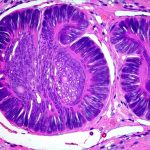The pursuit of optimal health often leads individuals down diverse paths, exploring dietary strategies designed to alleviate symptoms or enhance well-being. One increasingly discussed approach is the low-enzyme diet, rooted in the idea that reducing enzyme intake allows the body’s own digestive enzymes to work more efficiently and potentially reduce inflammation. This concept gains traction amongst those experiencing digestive discomfort, food sensitivities, or autoimmune conditions. However, while seemingly intuitive for some, drastically limiting dietary enzymes carries potential long-term risks to gut health that deserve careful consideration. It’s crucial to understand the intricate relationship between dietary enzymes, our innate digestive processes, and the delicate ecosystem within our gastrointestinal tract before embarking on such a restrictive diet.
The human body is an incredibly adaptable system, capable of remarkable feats of repair and resilience. But this adaptability can sometimes mask underlying imbalances or deficiencies when we push it too far in one direction. A low-enzyme diet, particularly if adhered to for extended periods, can disrupt the natural digestive process and negatively impact the gut microbiome – the vast community of bacteria residing within our intestines that plays a vital role in immunity, nutrient absorption, and overall health. The goal isn’t necessarily about eliminating enzymes entirely (which is practically impossible), but rather about understanding how drastically reducing them might affect your individual physiology and long-term wellbeing. This article will explore the potential risks associated with low-enzyme diets and offer insights into maintaining a healthy gut in light of these considerations.
Understanding Enzyme Deficiency & The Appeal of Low-Enzyme Diets
The rationale behind a low-enzyme diet stems from the belief that modern food processing methods significantly reduce naturally occurring enzymes in our foods. Proponents argue that this places an increased burden on the body to produce its own digestive enzymes—amylase, protease, and lipase being key examples – leading to potential digestive stress and nutrient malabsorption over time. Some individuals experience symptoms like bloating, gas, or indigestion and believe reducing enzyme intake will allow their bodies to better manage digestion. This is often coupled with the idea that consuming fewer enzymes allows for more efficient breakdown of food by your own enzymatic system, potentially reducing inflammation as undigested food particles are thought to contribute to immune responses.
However, it’s important to acknowledge that most healthy individuals possess sufficient enzyme production capabilities to digest a wide variety of foods. Enzyme deficiencies are generally rare and often linked to underlying medical conditions like pancreatic insufficiency or specific genetic mutations. A low-enzyme diet isn’t typically recommended as a first-line approach for digestive issues; instead, addressing dietary factors (like food sensitivities), managing stress levels, and optimizing overall lifestyle choices usually prove more effective. The appeal lies in its perceived simplicity: a restrictive diet that promises to alleviate discomfort by lessening the ‘workload’ on your digestive system.
It’s also worth noting that many foods do still contain enzymes, even after processing – fruits like pineapple and papaya are naturally rich in bromelain and papain respectively, known for their protein-digesting properties. Fermented foods such as yogurt, kefir, sauerkraut, and kimchi are also excellent sources of enzymes produced during the fermentation process. Completely eliminating these enzyme-rich foods can further exacerbate potential imbalances within the gut.
Long-Term Gut Health Risks
The prolonged restriction of dietary enzymes carries several potential risks for long-term gut health. Firstly, reducing the influx of naturally occurring enzymes could theoretically lead to an overreliance on your body’s own enzymatic production, potentially accelerating pancreatic exhaustion in susceptible individuals. While healthy pancreases are generally robust, constantly demanding increased enzyme output might eventually strain its capacity. Secondly, and perhaps more significantly, a low-enzyme diet can disrupt the delicate balance of the gut microbiome. Undigested food particles reaching the colon provide sustenance for certain bacterial populations while others starve.
This shift in microbial composition – often referred to as dysbiosis – has been linked to a wide range of health problems beyond digestive issues, including immune dysfunction, mood disorders, and even chronic diseases. The gut microbiome thrives on diversity; reducing enzyme intake can limit the food sources available to beneficial bacteria, fostering an environment where less desirable microbes flourish. This imbalance compromises the protective barrier function of the intestinal lining, increasing permeability (often termed “leaky gut”) and potentially triggering systemic inflammation. Maintaining a diverse and robust gut microbiome is paramount for long-term health, and restrictive diets like low-enzyme plans can seriously compromise this vital ecosystem.
Finally, insufficient enzyme activity hinders optimal nutrient absorption. While the body attempts to compensate, it may struggle to fully break down complex carbohydrates, proteins, and fats, leading to deficiencies over time. This isn’t about a lack of enzymes in general; it’s about reducing the variety of enzymatic action that food sources naturally provide.
Enzyme Support vs. Restriction: A Balanced Approach
Rather than focusing on complete restriction, exploring ways to support natural enzyme production and optimize digestion often proves more beneficial for long-term gut health. This can involve several strategies:
1. Prioritizing whole, unprocessed foods that retain their inherent enzymatic content.
2. Incorporating fermented foods into your diet as a source of probiotics and enzymes.
3. Practicing mindful eating habits – chewing food thoroughly to begin the digestive process in the mouth and reducing meal sizes to ease the burden on the digestive system.
Supplementing with broad-spectrum digestive enzymes may be helpful under the guidance of a healthcare professional for individuals experiencing diagnosed enzyme deficiencies or specific digestive disorders, but should not be seen as a substitute for a balanced diet and healthy lifestyle. The goal isn’t to bypass your body’s natural processes but rather to enhance them. Focus on supporting digestion, not suppressing it.
Addressing the Root Cause of Digestive Issues
Many individuals turn to low-enzyme diets as a quick fix for digestive discomfort. However, the underlying cause of these symptoms often lies elsewhere. Food sensitivities or intolerances are common culprits – identifying and eliminating triggering foods (such as gluten, dairy, or soy) can significantly improve digestion. Stress management techniques like meditation, yoga, or deep breathing exercises play a crucial role, as stress directly impacts digestive function. Furthermore, conditions like Small Intestinal Bacterial Overgrowth (SIBO) can mimic enzyme deficiencies; accurate diagnosis and targeted treatment are essential in these cases.
It’s vital to remember that symptoms are signals – they’re indicators that something isn’t quite right within the body. Simply masking symptoms with a restrictive diet without addressing the underlying cause is unlikely to yield long-term benefits and may even exacerbate the problem. A comprehensive assessment by a qualified healthcare professional, including dietary analysis, symptom tracking, and potentially diagnostic testing, is crucial for identifying the root cause of digestive issues and developing an appropriate treatment plan.
The Importance of Gut Microbiome Diversity
The gut microbiome isn’t merely a passive bystander in digestion; it actively participates in breaking down complex carbohydrates, synthesizing vitamins, regulating immunity, and protecting against pathogens. A healthy gut microbiome is characterized by high diversity—a wide range of bacterial species coexisting harmoniously. As previously mentioned, low-enzyme diets can disrupt this balance, reducing microbial diversity and increasing the risk of dysbiosis.
Cultivating a diverse gut microbiome involves several strategies: – Consuming a diet rich in fiber from fruits, vegetables, and whole grains provides food for beneficial bacteria. – Incorporating fermented foods introduces probiotics – live microorganisms that contribute to gut health. – Avoiding unnecessary antibiotic use minimizes disruption to the microbial ecosystem. – Managing stress levels reduces inflammation and supports microbial balance. Prioritizing gut microbiome diversity is essential for long-term health, and restrictive diets should be approached with caution, always considering their potential impact on this vital ecosystem.


















